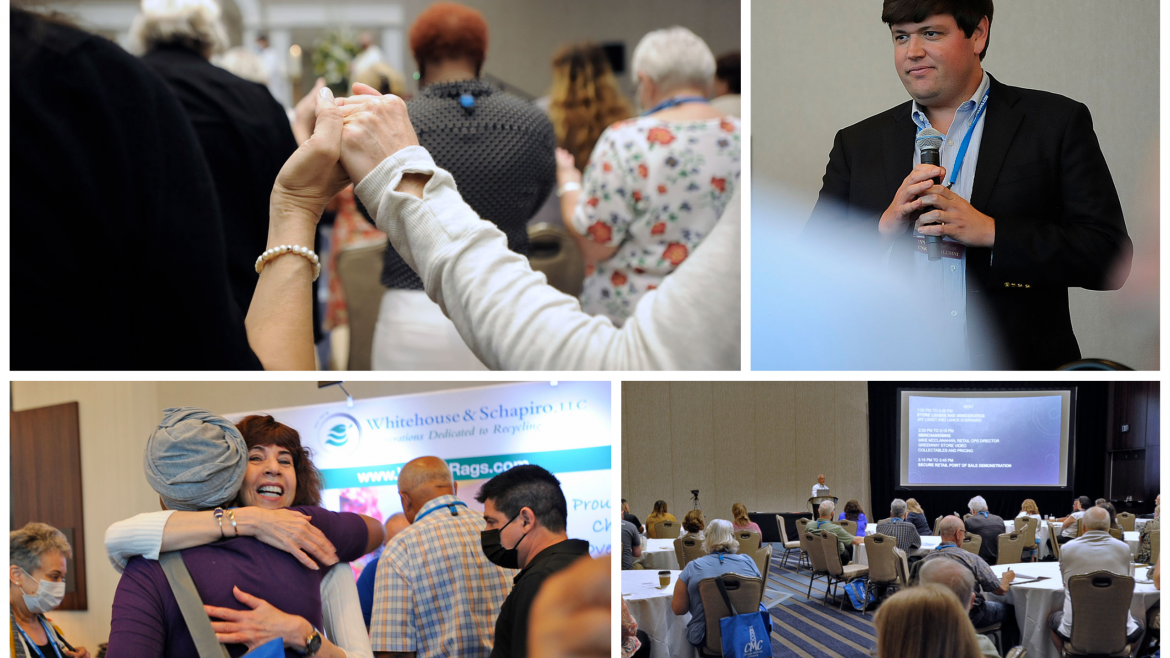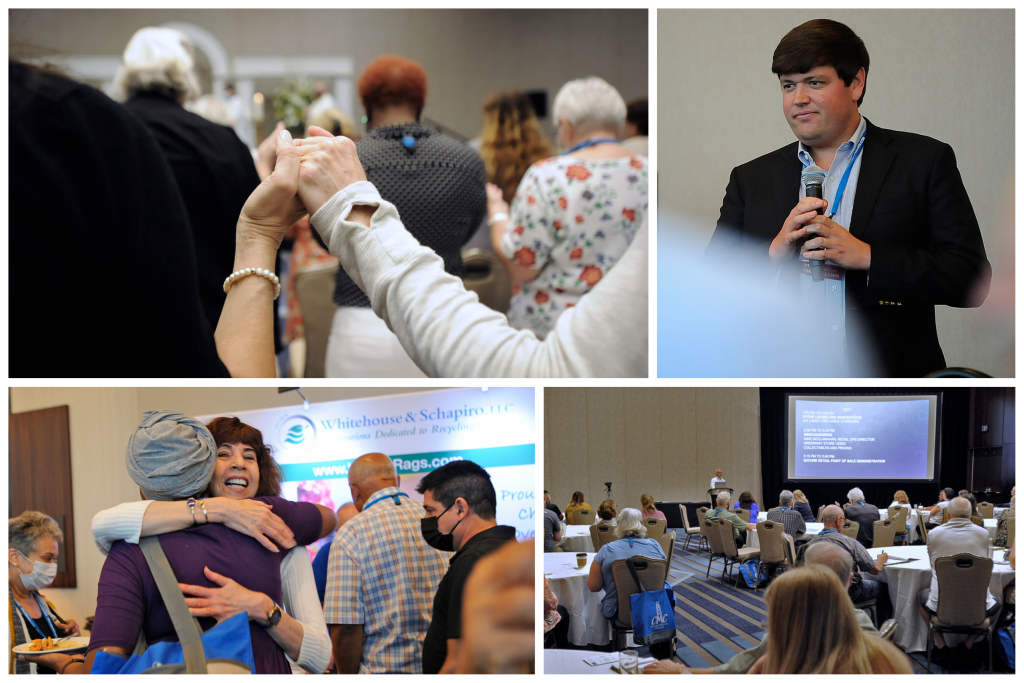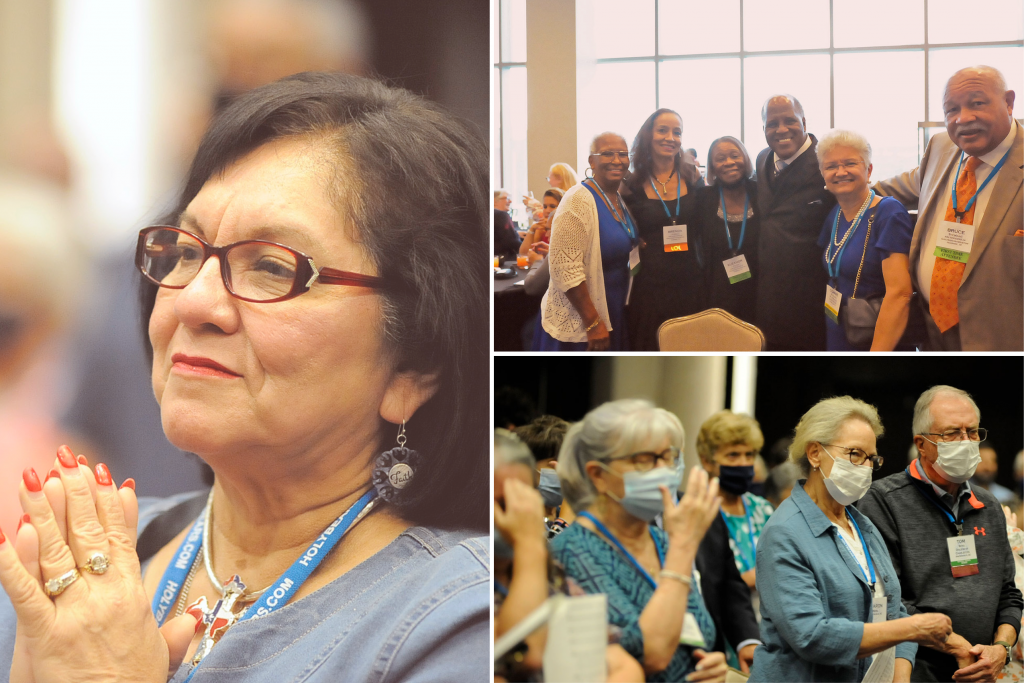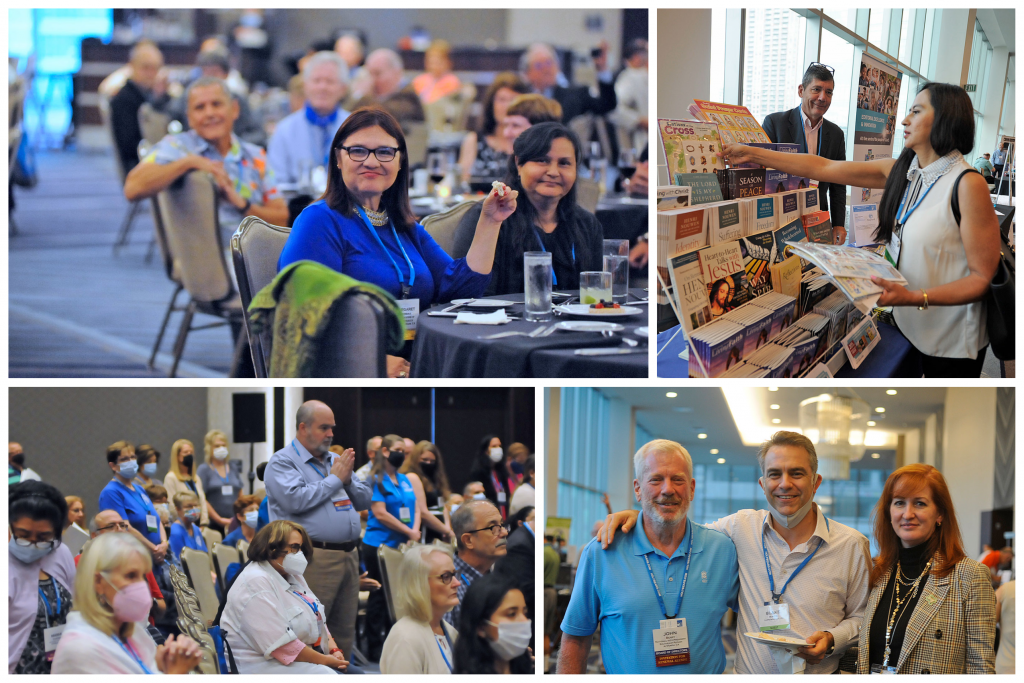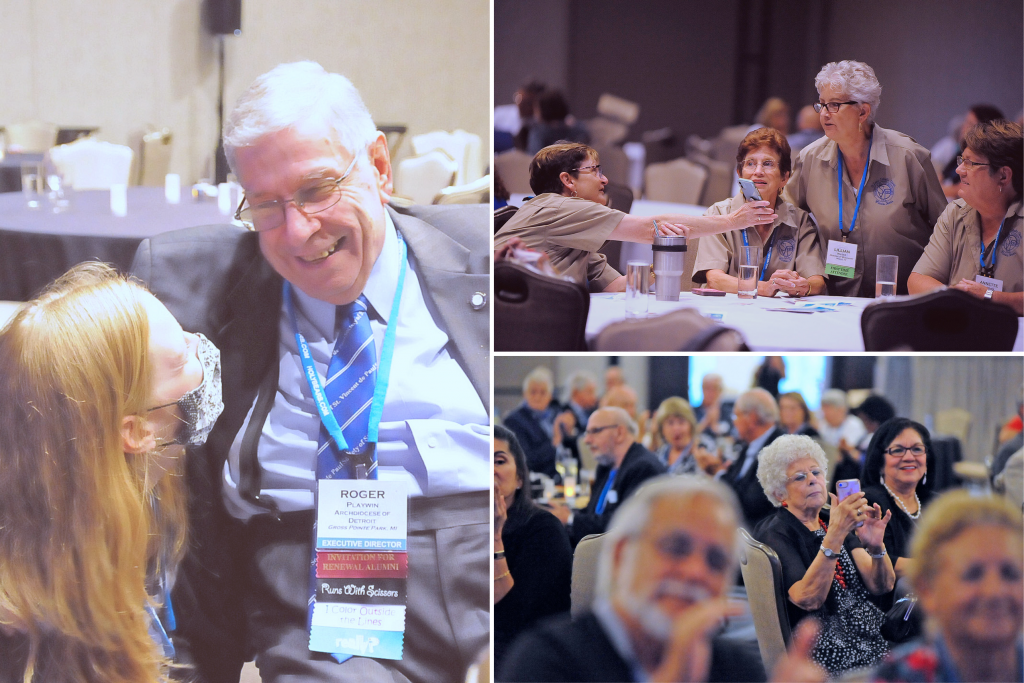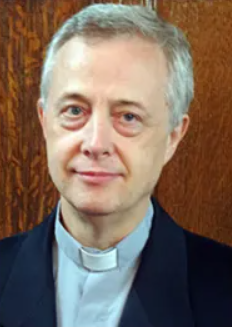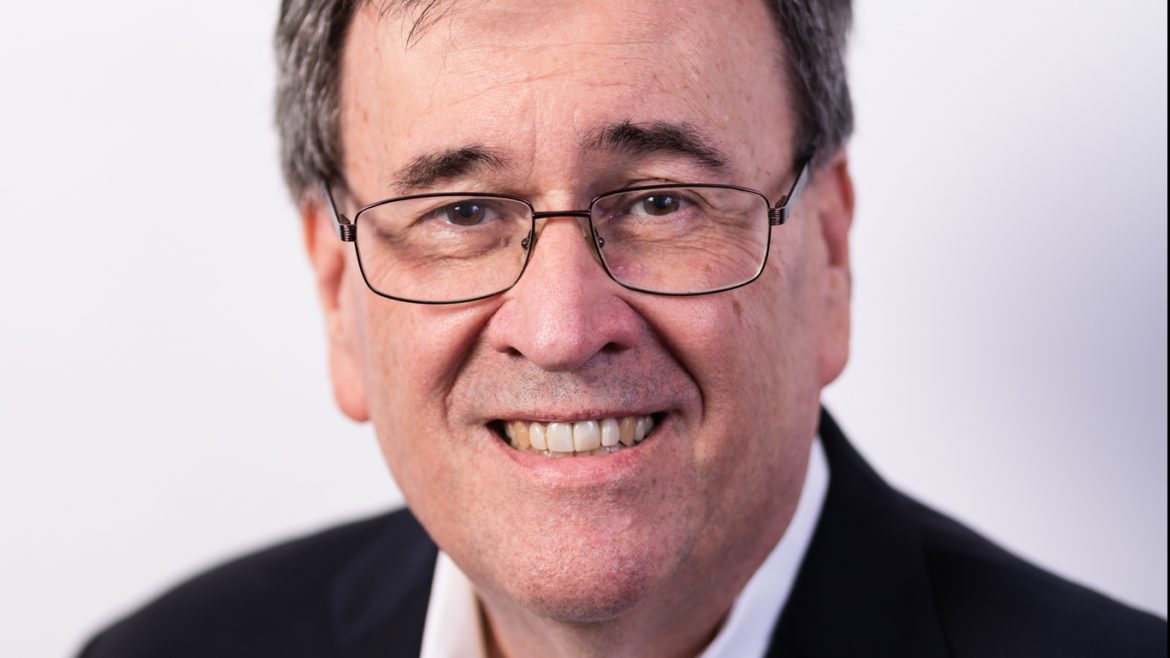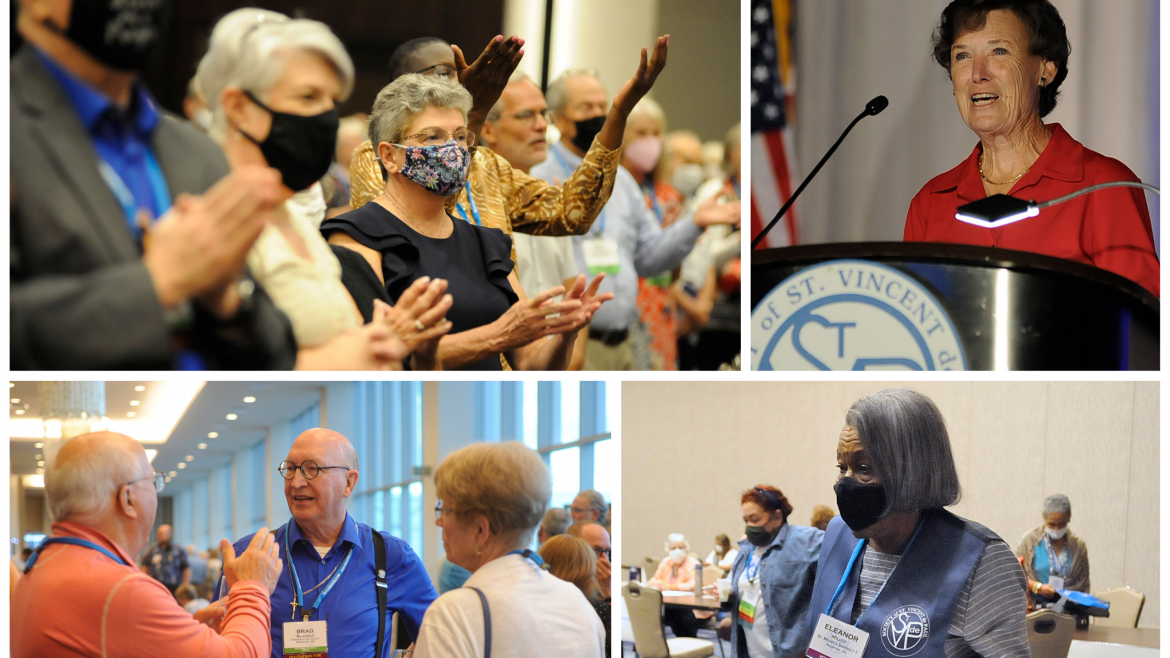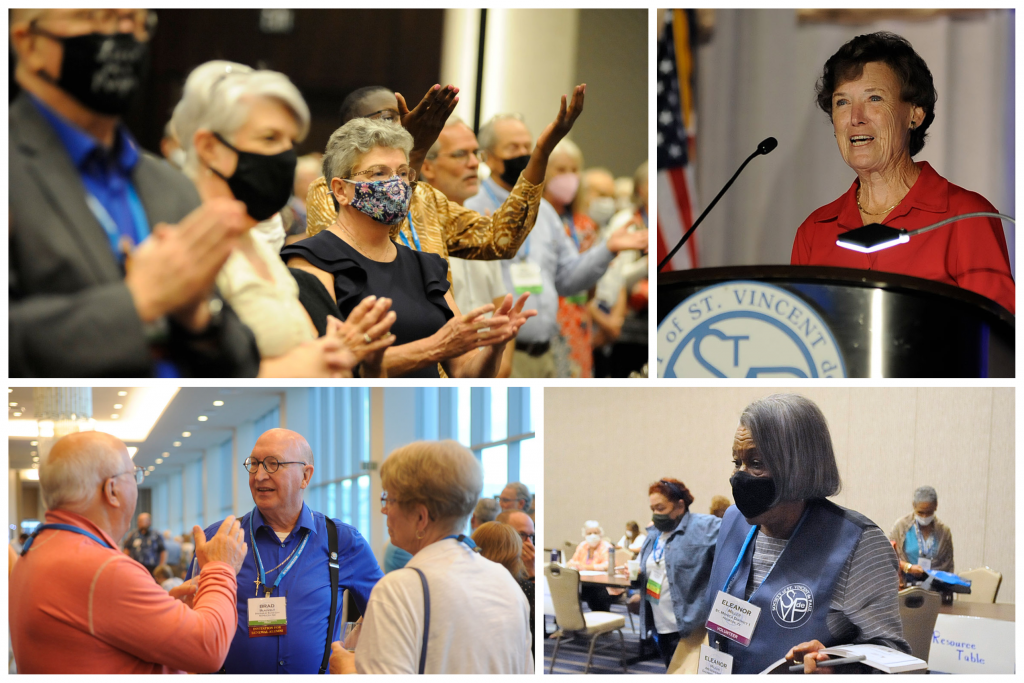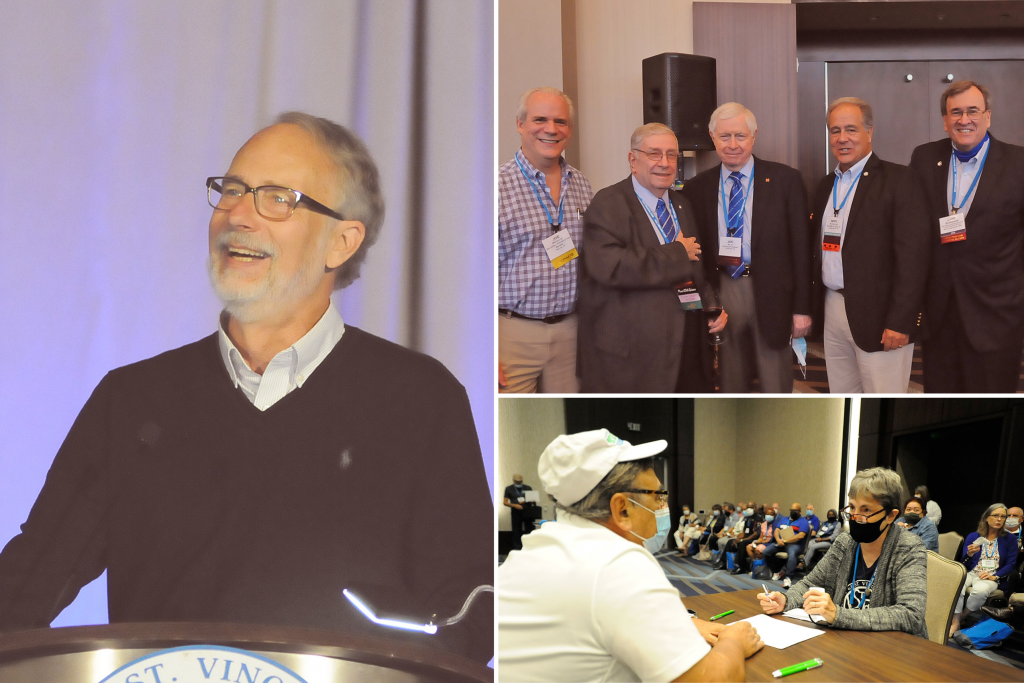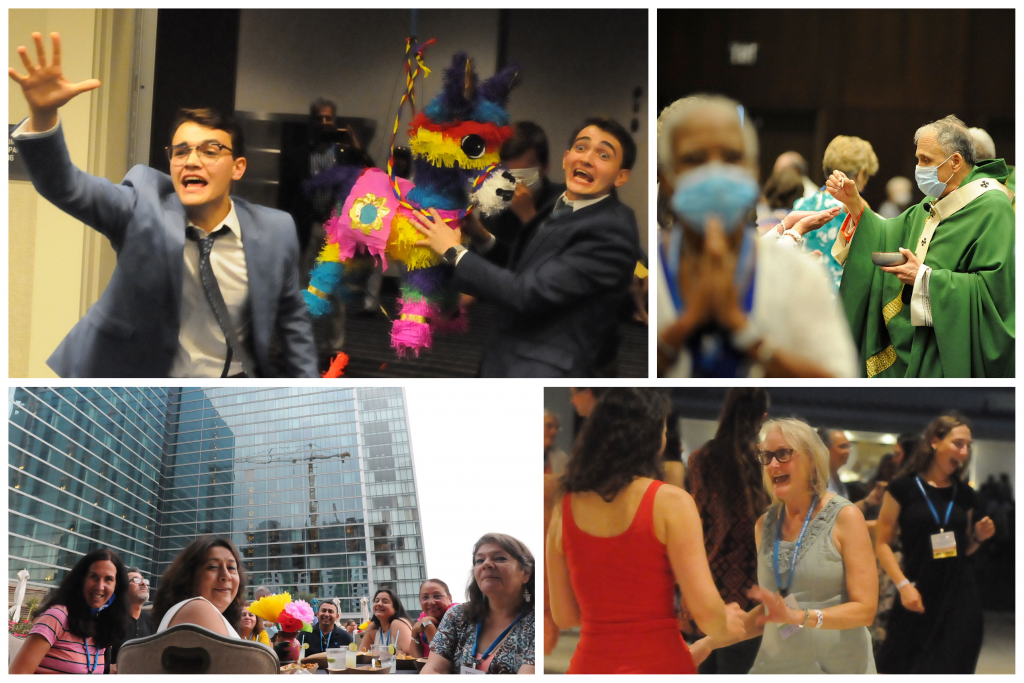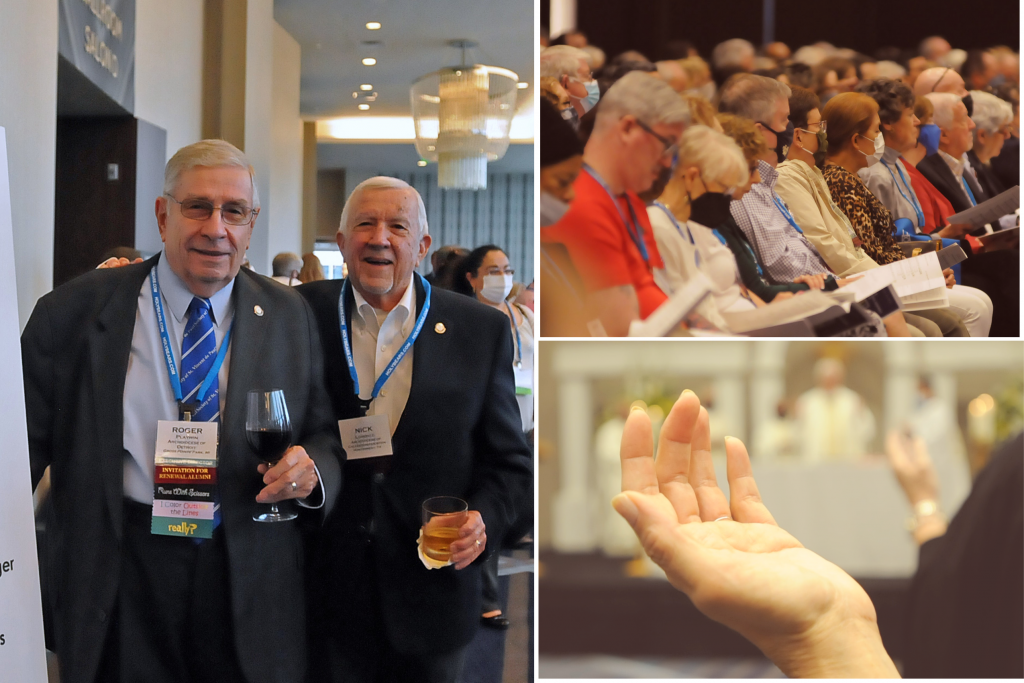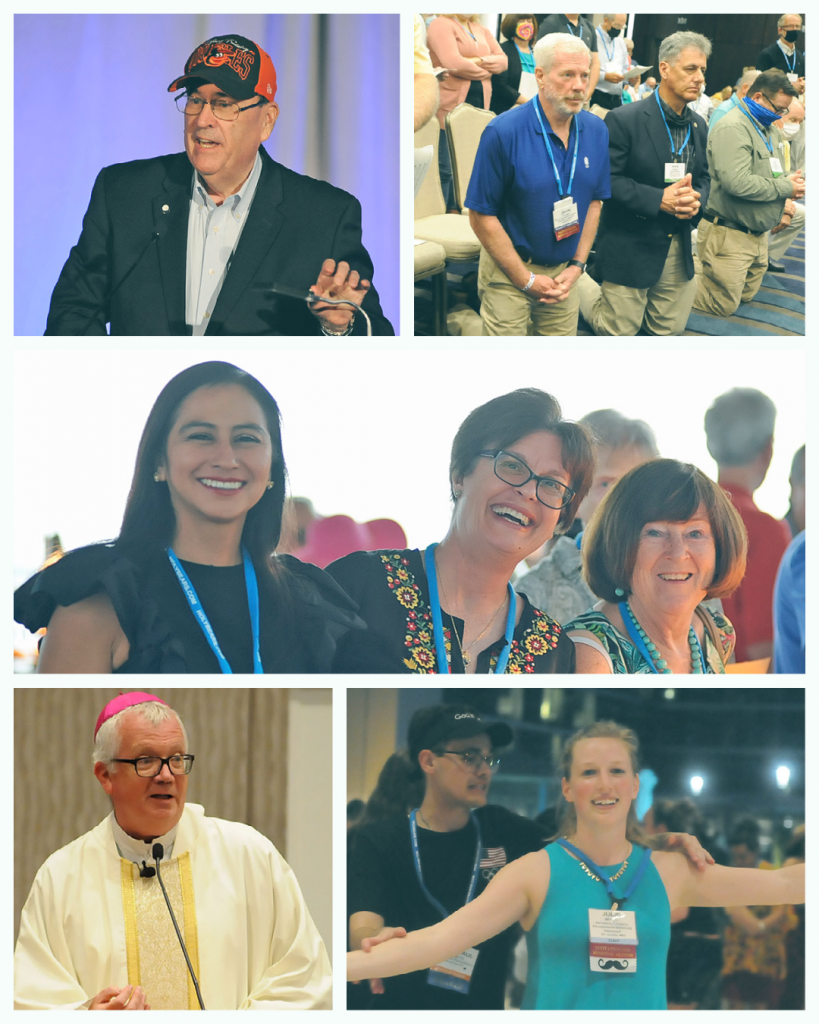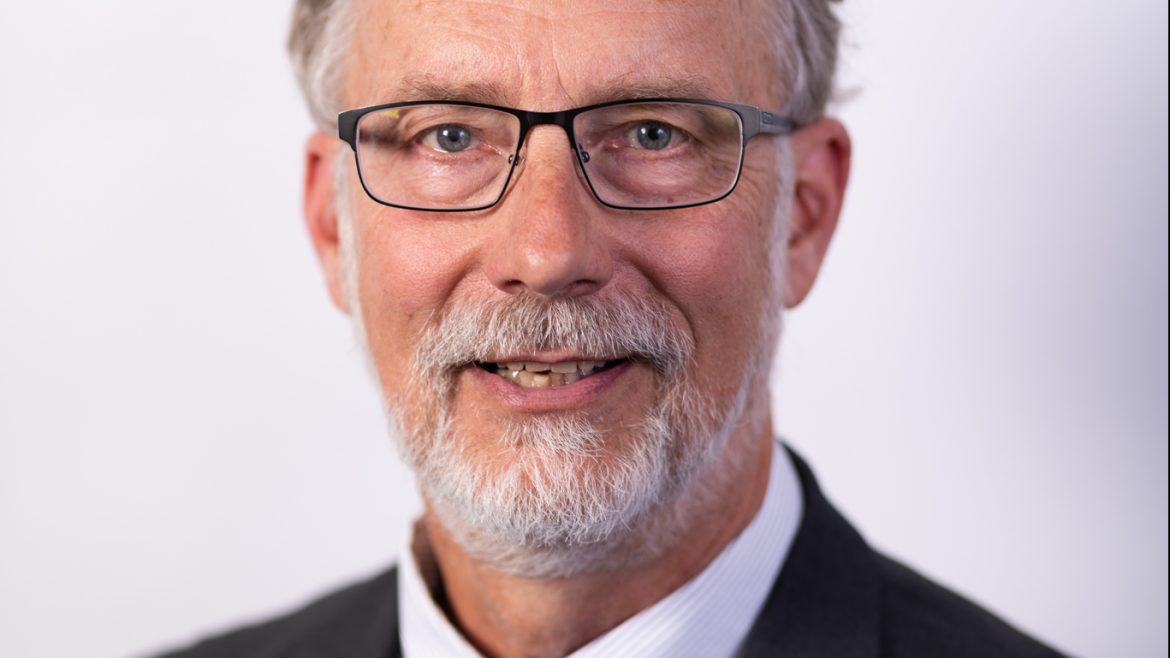Dear Vincentian Friends,
I have just returned from the Heritage Pilgrimage to Paris, which was originally scheduled for last year as part of our 175th anniversary celebrations. In spite of some challenges, 23 Vincentians from all over the United States were able to walk together in the footsteps of our founders and patrons.
On our pilgrimage, we celebrated Mass at the tombs of Frédéric Ozanam, St. Vincent de Paul, and St. Louise de Marillac. Our group prayed at and put flowers on the grave of Sister Rosalie Rendu. We visited the churches where they worshiped, walked the streets they walked, saw where they lived, and visited several small museums containing possessions of these holy people.
A pilgrimage is about more than visiting places. One source defines a pilgrimage as “a journey, often into an unknown or foreign place, where a person goes in search of new or expanded meaning about their self, others, nature, or a higher good, through the experience. It can lead to a personal transformation, after which the pilgrim returns to their daily life.”
At our final dinner we all concluded that we are returning to our daily life enriched by the experience. An observation was made that these were ordinary people who struggled with life, just like we all do. But being attentive to God, what they did made the world a better place. Someone else shared that the reason we know about Vincent and Frédéric is that they inspired a long line of people who continued to dedicate themselves to carry on what they initiated.
You and I are in that chain of servants to the poor. We must provide leadership to our Conferences and Councils, and invite new members so that these efforts continue to witness to the love of God. Most Vincentians will not go on pilgrimage to Paris, but we all strive to walk in the footsteps of our founders and patrons by continuing the network of friends they inspired, a network which visits the poor in Christ’s name, providing them with material needs and friendship. Those we serve may never know who St. Vincent de Paul or Frédéric Ozanam are, but they know us.
After our Mass in Ozanam’s tomb, we prayed a prayer written by his wife Amelie in that same crypt. Aside from some changed gender roles referenced, it seemed she wrote the prayer specifically for us. The prayer has a timeless and universal message that gave me a deep appreciation of spirituality of the woman who was loved dearly by Frédéric Ozanam.
She prayed, “Dear Lord Jesus who came down from the heavens to this underground vault, to this humble altar, residing now in our hearts, hear our prayer, protect all that we hold most dear on this Earth and, at this time when the future of our country is in the balance, give strength and good judgment to those who wish for Good. Choose fair and measured men to govern us, free of the passions that can blind us, but full of the passion for justice. Have pity, oh Lord, on those who suffer. Relieve their pain and bring back to us that great Christian whom you wished to purify and who may serve you once again.
“Watch over our families, Lord, give our sons the desire to work, give them devotion, the very best guardian of their virtue. Make men of them, so that they may serve their country with honor and serve you with faith. Give our daughters the strength to raise their children well and to carry out their duties graciously. Bestow good health upon us and may none of the people close to our hearts abandon the faith of the Church.
“Oh you martyrs, illustrious prelates, virgin saints, and you my darling one, whose bodies are laid to rest together in this place, pray, pray for us that our wishes be granted, and while we wait for the day when we shall be reunited, fill our souls with strength, peace and love.”
It is a fitting prayer for all Vincentian pilgrims on our journey toward holiness.
Serviens in spe,
Ralph Middlecamp
National Council President


